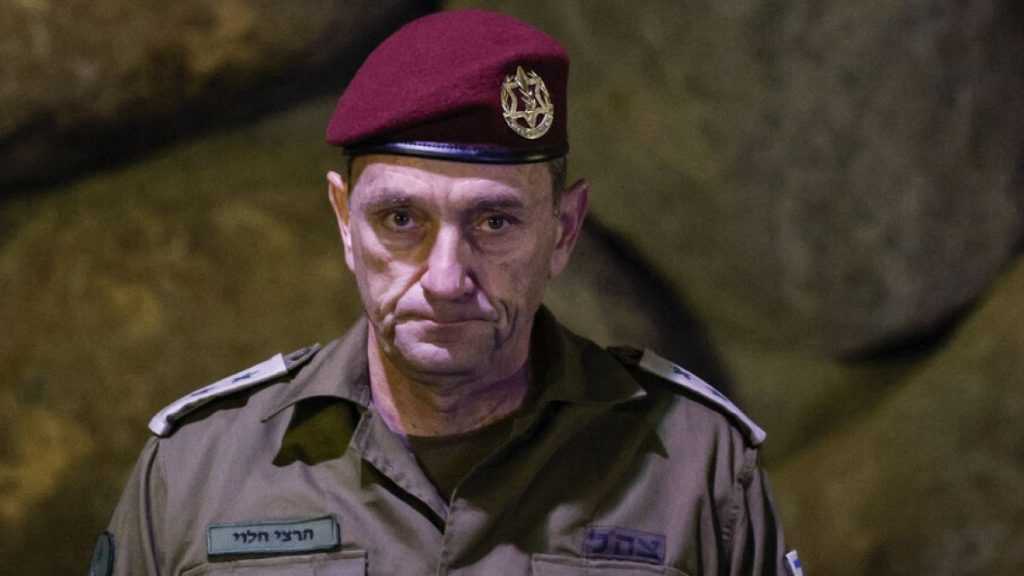The resignation of Lieutenant General Herzi Halevi, Chief of Staff of the Israel Defense Forces (IDF), marks a significant turning point in the aftermath of the devastating Hamas attack on October 7, 2023. Halevi’s decision to step down, coupled with the resignation of Major General Yaron Finkelman, head of the Southern Command, underscores the profound impact of the security and intelligence failures that allowed the unprecedented assault to occur. The attack, which involved thousands of Hamas militants launching a coordinated land, sea, and air incursion into southern Israel, resulted in the deaths of approximately 1,200 Israelis, predominantly civilians, and the capture of over 250 individuals, with a tragic number believed to have perished in captivity. This single event represents the deadliest attack in Israel’s history and has left an indelible scar on the nation’s psyche.
Halevi’s resignation letter, addressed to Defence Minister Israel Katz, unequivocally accepts responsibility for the IDF’s failure to protect Israeli citizens. He acknowledges the gravity of the situation, stating that the responsibility for this “terrible failure” will remain with him for the rest of his life. This act of accountability, while significant, cannot fully address the complex web of failures that led to the attack. The IDF’s investigation, which Halevi has pledged to complete before his departure in March, is crucial for understanding the systemic breakdowns that allowed Hamas to penetrate Israel’s defenses so effectively. The investigation’s findings will undoubtedly be scrutinized by both the Israeli public and the international community, eager for answers and seeking assurances that such a breach will never happen again.
The Hamas attack triggered a fierce Israeli retaliation in Gaza, resulting in a devastating conflict with a staggering death toll. According to the Hamas-run health ministry in Gaza, at least 47,000 Palestinians have been killed. This grim statistic underscores the brutal nature of the conflict and the immense human cost on both sides. While the IDF has emphasized its efforts to target militants and military infrastructure, the high number of casualties raises serious concerns about the impact on civilians. The ongoing conflict highlights the deeply entrenched animosity between Israelis and Palestinians, with cycles of violence perpetuating the suffering of both populations.
Halevi’s commitment to complete the IDF’s internal investigation before his departure is a positive step toward transparency and accountability. His assurance that any external inquiry, including a potential commission of inquiry, will receive full cooperation from the IDF is essential for fostering public trust. However, this commitment also places increased pressure on Prime Minister Benjamin Netanyahu, who has resisted calls for a public inquiry into the government’s responsibility for the security failures. Netanyahu’s administration has argued that such an inquiry should be delayed until the conclusion of the war, a stance that has drawn criticism from opposition figures and some members of the public who demand immediate answers and accountability.
The timing of Halevi and Finkelman’s resignations, just days after a fragile ceasefire and hostage exchange agreement was reached between Israel and Hamas, adds another layer of complexity to an already volatile situation. The ceasefire, while currently holding, represents a tentative step towards de-escalation. The agreement involves the release of hostages and prisoners in phases, with the first phase spanning 42 days. The long-term viability of the ceasefire and the success of the subsequent phases of the agreement remain uncertain. The complex political dynamics within both Israel and Palestine, coupled with the deep-seated mistrust between the two sides, create a challenging environment for achieving a lasting peace.
The Hamas attack and the subsequent conflict have exposed deep vulnerabilities in Israel’s security apparatus and highlighted the ongoing challenges in the Israeli-Palestinian conflict. The resignations of Halevi and Finkelman represent an important step towards accepting responsibility for the security failures, but they are only the beginning of a long and difficult process of reckoning and reform. The IDF’s internal investigation, along with any potential external inquiries, must be thorough and transparent to ensure that lessons are learned and necessary changes are implemented to prevent future tragedies. The fragile ceasefire offers a glimmer of hope for a more peaceful future, but the path forward remains fraught with challenges. The international community must play a constructive role in supporting dialogue and fostering a climate conducive to a lasting resolution of the conflict. Ultimately, lasting peace can only be achieved through a comprehensive and just settlement that addresses the legitimate concerns of both Israelis and Palestinians.














